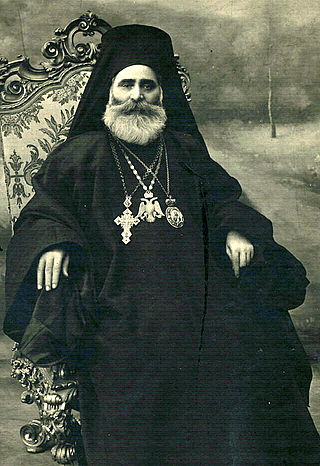The New Calendarists are Eastern Orthodox churches that adopted the Revised Julian calendar.[1]

Background
In the history of Christianity, divisions on which calendar to use were initiated after 1582, when the Roman Catholic Church transitioned from the ancient Julian calendar to the new Gregorian calendar.[2]
Eventually, by the 18th century, the Gregorian Calendar was officially adopted even in Protestant countries as the civil calendar, but still faced some opposition from smaller groups. In the Kingdom of Great Britain, the Gregorian calendar was officially introduced in 1752.[3]
Around the same time, debates between those wanting to adopt the Gregorian Calendar and traditionalists wanting to keep the Julian calendar were also going on within several Eastern Catholic Churches. Those debates were focused mainly on ritual questions and ended in various compromises. The need for preservation of ritual differences, including various questions related to liturgical calendar, was consequently acknowledged by Rome.[4]
New Calendarists
In 1923, the Revised Julian calendar was devised. Since then, several Eastern Orthodox Churches have introduced partial changes into their liturgical calendars.[5] Those changes were based on the application of the Revised Julian calendar for the liturgical celebration of immovable feasts (including Christmas), thus reducing the use of the old Julian calendar to liturgical celebration of moveable feasts (feasts of the Easter cycle).[6]
Thus, the Revised calendar use was introduced. It has been adopted by:
- the Ecumenical Patriarchate (March 1924)
- the Church of Greece (March 1924)
- the Church of Cyprus[7][8][9] (March 1924)
- the Romanian Orthodox Church (later in 1924[8])
- the Patriarchate of Alexandria (in 1928)
- the Patriarchate of Antioch (in 1928)
- the Albanian Orthodox Church (April 1937)
- the Bulgarian Orthodox Church[9][7] (in 1968)
- the Orthodox Church of Ukraine[10] (in 2023)
The Orthodox Church in America (except for Alaska) also uses the revised calendar.
It was not adopted by the Eastern Orthodox Churches of:
The Polish Orthodox Church has wavered between the two calendars; today it officially follows the old calendar.[7]
In Eastern Orthodoxy, issues related to calendar reform did not produce break of communion or schisms between the mainstream churches, but they did cause disputes and internal schisms within some churches. The result of those conflicts was the emergence of the Old Calendarist movement, and consequent creation of separate churches, thus breaking the communion with those mother churches that accepted the calendar reform.[7]
See also
References
Wikiwand in your browser!
Seamless Wikipedia browsing. On steroids.
Every time you click a link to Wikipedia, Wiktionary or Wikiquote in your browser's search results, it will show the modern Wikiwand interface.
Wikiwand extension is a five stars, simple, with minimum permission required to keep your browsing private, safe and transparent.
